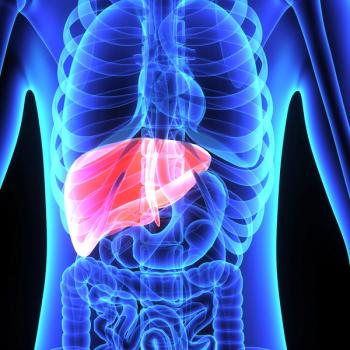
NAPOLI-3 Study Answers ‘Important Question’ in Metastatic Pancreatic Cancer
An expert from the University of California, Los Angeles described the purpose and design of the phase 3 NAPOLI-3 study, assessing NALIRIFOX in metastatic pancreatic ductal adenocarcinoma.
Findings from the phase 3 NAPOLI-3 study (NCT04083235) highlighted improved outcomes following first-line liposomal irinotecan (Onivyde) plus 5 fluorouracil/leucovorin and oxaliplatin (NALIRIFOX) compared with gemcitabine plus nab-paclitaxel in patients with metastatic pancreatic ductal adenocarcinoma, according to Zev A. Wainberg, MD.
CancerNetwork® spoke with lead author, Wainberg, a professor of medicine at the University of California, Los Angeles (UCLA) and co-director of the UCLA Gastrointestinal Oncology Program, regarding data that were presented at the
In the NAPOLI-3 study, the median overall survival was 11.1 months (95% CI, 10.0-12.1) with NALIRIFOX vs 9.2 months (95% CI, 8.3-10.6) with gemcitabine plus nab-paclitaxel (HR, 0.83; 95% CI, 0.71-0.99; P = .04). Additionally, the median PFS was 7.4 months (95% CI, 6.0-7.7) vs 5.6 months (95% CI, 5.3-5.8) in each respective cohort (HR, 0.69; 95% CI, 0.58-0.83; P = .0001).
Transcript:
For many years, we have had 2 regimens that have been used: gemcitabine and nab-paclitaxel being one, and FOLFIRINOX being another. There have not been studies done to compare those 2 [regimens].
This was an attempt to try to answer the question of which was superior. In this case, we used a derivative FOLFIRINOX called NALIRIFOX that uses liposomal irinotecan in place of irinotecan to answer the head-to-head question of which is a superior regimen for the purposes of overall survival.
We enrolled 770 patients with metastatic disease all around the world. The most important efficacy findings were that the NALIRIFOX regimen was superior to gemcitabine plus nab-paclitaxel.
[It] improved overall survival by 1.9 months and improved progression-free survival, as well. [The study] met its end point of improvement in survival over the gemcitabine and nab-paclitaxel regimen. [This trial] answered an important question in the field.
Reference
Wainberg ZA, Melisi D, Macarulla T, et al. NAPOLI-3: a randomized, open-label phase 3 study of liposomal irinotecan + 5-fluorouracil/leucovorin + oxaliplatin (NALIRIFOX) versus nab-paclitaxel + gemcitabine in treatment-naïve patients with metastatic pancreatic ductal adenocarcinoma (mPDAC). J Clin Oncol. 2023;41(suppl 4):LBA661. doi:10.1200/JCO.2023.41.3_suppl.LBA661
Newsletter
Stay up to date on recent advances in the multidisciplinary approach to cancer.











































